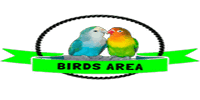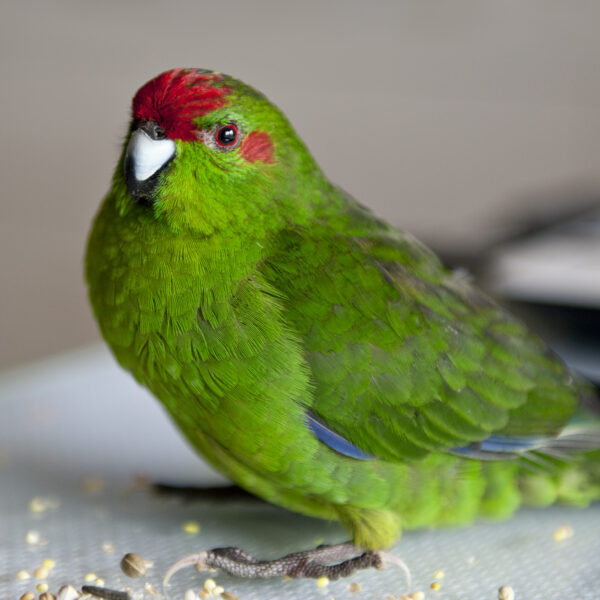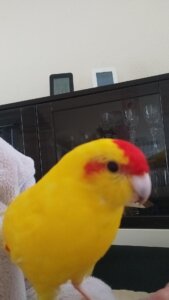Best Food For Kakarikis: Top Nutritional Choices Revealed
Feeding your Kakarikis the best food is essential for their health. A balanced diet ensures they stay happy and active.
Kakarikis are lively, colorful birds native to New Zealand. Their diet in the wild includes a mix of seeds, fruits, and vegetables. As pets, they need a similar variety to thrive. In this blog post, we’ll explore the best food options for Kakarikis.
You’ll learn about the ideal seeds, fresh produce, and special treats. Proper nutrition helps prevent illness and supports their playful nature. With the right diet, your Kakarikis can live a long, vibrant life. Let’s dive into the best food choices for these delightful birds.
Introduction To Kakariki Nutrition
Kakarikis are lively, small parrots known for their vibrant colors and playful nature. To keep them healthy and happy, providing the right nutrition is essential. This section focuses on the introduction to Kakariki nutrition, emphasizing the importance of a balanced diet and common nutritional needs.
Importance Of A Balanced Diet
A balanced diet is crucial for Kakarikis. It supports their overall health, vibrant feathers, and energy levels. A well-rounded diet ensures they get all the nutrients they need. It reduces the risk of deficiencies and related health issues.
A proper diet should include a mix of seeds, fruits, vegetables, and occasional treats. This variety ensures they receive the right balance of vitamins and minerals.
Here’s a breakdown of what a balanced diet for Kakarikis might look like:
| Food Type | Percentage of Diet |
|---|---|
| Seeds | 30% |
| Fruits | 20% |
| Vegetables | 40% |
| Treats | 10% |
Common Nutritional Needs
Kakarikis have specific nutritional needs that must be met for optimal health. Below are some key nutrients:
- Proteins: Essential for growth and muscle development. Found in seeds and nuts.
- Vitamins: Crucial for immune function and feather health. Fruits and vegetables are rich sources.
- Minerals: Important for bone strength and metabolic functions. Include a variety of foods for balance.
It’s also important to provide fresh water daily. This ensures they stay hydrated and supports their digestive health.

Credit: feistyfeathers.com
Fresh Fruits And Vegetables
Feeding your Kakarikis fresh fruits and vegetables is essential. These foods provide vital nutrients for their growth and well-being. Fresh produce keeps your bird healthy and happy.
Safe Fruits For Kakarikis
Offering a variety of fruits ensures a balanced diet. Here is a list of safe fruits for Kakarikis:
- Apples (remove seeds)
- Bananas
- Blueberries
- Grapes (seedless)
- Pears (remove seeds)
- Strawberries
Healthy Vegetables Options
Vegetables provide essential vitamins and minerals. Include these healthy options in your Kakarikis’ diet:
- Carrots
- Spinach (in moderation)
- Broccoli
- Bell Peppers
- Sweet Potatoes (cooked)
- Peas
Always wash fruits and vegetables thoroughly. Remove any seeds or pits that could be harmful. Rotate different fruits and vegetables to keep your bird interested and healthy.
Seeds And Grains
Feeding Kakarikis the right seeds and grains can improve their health and happiness. These small parrots need a balanced diet. Seeds and grains are an important part of it. They provide essential nutrients and energy.
Preferred Seed Types
Kakarikis enjoy a variety of seeds. Here are some of their favorites:
- Sunflower Seeds: Rich in fats and oils, great for energy.
- Millet: Easy to eat and digest, a staple in their diet.
- Safflower Seeds: High in protein and healthy fats.
- Canary Seeds: Packed with essential amino acids.
Offer a mix of these seeds for a balanced diet. Rotate the types to keep their meals interesting.
Benefits Of Whole Grains
Whole grains provide more than just energy. They are crucial for a Kakariki’s health:
| Grain | Benefits |
|---|---|
| Brown Rice | Rich in fiber, supports digestion. |
| Quinoa | High in protein, contains essential amino acids. |
| Oats | Provide energy and help maintain a healthy weight. |
| Barley | Boosts immune system with its vitamins and minerals. |
Including whole grains in their diet can improve their overall well-being. Mix these grains with seeds for a nutritious meal.
Protein Sources
Providing the best diet for your Kakarikis is essential for their health. Protein is a vital nutrient that helps in their growth and overall wellbeing. In this section, we will explore the best protein sources for your Kakarikis. We will look at both animal-based and plant-based proteins to ensure a balanced diet.
Animal-based Proteins
Animal-based proteins are an excellent source of essential amino acids. These proteins help in muscle development and feather health. Some good options include:
- Eggs: Boiled eggs are a great source of protein. They are easy to prepare and can be given in small amounts.
- Cooked Chicken: Offer small, well-cooked pieces of chicken. Ensure it is unseasoned and free of bones.
- Insects: Mealworms and crickets are high in protein. These can be given occasionally as a treat.
Plant-based Proteins
Plant-based proteins are also important in your Kakarikis’ diet. They provide a variety of nutrients and are easy to digest. Here are some top choices:
- Quinoa: This grain is packed with protein. Cook it well and serve it in small portions.
- Beans: Cooked beans like lentils and chickpeas are excellent protein sources. Ensure they are well-cooked and mashed to avoid choking hazards.
- Seeds: Pumpkin seeds, sunflower seeds, and chia seeds are rich in protein. Offer them in moderation as they are high in fat.
Providing a mix of animal-based and plant-based proteins ensures your Kakarikis get a balanced diet. This variety helps in their overall health and happiness.
Supplements And Vitamins
Feeding your Kakarikis a balanced diet is crucial for their health. Supplements and vitamins play a significant role in ensuring they receive all essential nutrients. Proper supplementation can prevent deficiencies and promote a long, vibrant life for your bird.
Essential Vitamins
Vitamins are vital for your Kakarikis’ overall health. Vitamin A supports their vision and immune system. Vitamin D is necessary for healthy bones and calcium absorption. Vitamin E acts as an antioxidant, protecting cells from damage. Ensure their diet includes these vitamins to maintain their well-being.
Common Supplements
Calcium supplements are crucial for bone health and egg formation. Probiotics support digestive health and boost the immune system. Omega-3 fatty acids promote healthy feathers and skin. Adding these supplements can enhance your bird’s diet and overall health.
Treats And Snacks
Kakarikis, also known as New Zealand parakeets, love a variety of foods. Treats and snacks play a vital role in their diet. Offering them healthy treats can keep them happy and energized. Let’s explore some healthy treat ideas and foods to avoid for your feathered friend.
Healthy Treat Ideas
Healthy treats can be a great addition to your Kakariki’s diet. Here are some nutritious options:
- Fresh Fruits: Offer apple slices, berries, or bananas.
- Vegetables: Try carrots, spinach, and broccoli florets.
- Grains: Serve cooked quinoa, brown rice, or oats.
- Seeds: Provide sunflower seeds in moderation.
- Herbs: Fresh basil, parsley, or dill are great choices.
Always wash fruits and vegetables before serving. Remove any seeds or pits from fruits, as they can be harmful.
Foods To Avoid
Some foods can be dangerous for Kakarikis. Avoid these items to ensure their safety:
- Chocolate: It’s toxic to birds and should never be given.
- Avocado: Contains persin, which is harmful to birds.
- Caffeine: Found in coffee, tea, and soda, it’s dangerous for Kakarikis.
- Alcohol: Never offer alcoholic beverages to your bird.
- Onions and Garlic: These can cause digestive issues and anemia.
Stick to safe and healthy options to keep your Kakariki in top shape. Regular treats can enhance their diet and make them feel loved.
Hydration Needs
Hydration is crucial for the well-being of Kakarikis. They need consistent access to water and moisture-rich foods. Proper hydration keeps them healthy and active. It’s essential to understand their hydration needs to ensure they thrive.
Importance Of Fresh Water
Fresh water is vital for Kakarikis’ health. They should always have access to clean, fresh water. Change their water daily to prevent bacteria growth. Clean water dishes regularly. Contaminated water can harm their health.
Hydrating Foods
Some foods help keep Kakarikis hydrated. Fresh fruits and vegetables are excellent choices. Cucumbers, apples, and leafy greens provide moisture and nutrients. These foods supplement their water intake. Offer them daily to ensure proper hydration.
Creating A Feeding Schedule
Creating a feeding schedule for your Kakariki is essential. It ensures they get the right nutrients at the right times. A well-planned schedule helps maintain their health and energy levels. Let’s dive into the details of meal timing and portion sizes.
Meal Timing
Kakarikis thrive on a regular feeding routine. Feed them twice a day. Morning and evening are ideal. Consistency is key. Stick to the same times daily. This helps their digestion and keeps them happy.
Portion Sizes
Proper portion sizes prevent overfeeding. A balanced diet includes seeds, fruits, and vegetables. Offer small amounts to avoid waste. Keep track of what they eat. Adjust portions as needed. Monitor their weight regularly. This helps you know if adjustments are necessary.
Monitoring And Adjusting Diet
Keeping an eye on your Kakariki’s diet is crucial. These lively birds need a balanced diet to stay healthy. It’s important to monitor their eating habits and adjust their diet as needed. This helps prevent any nutritional deficiencies and keeps them in top shape.
Signs Of Nutritional Deficiency
Recognizing signs of nutritional deficiency is vital. Here are some common signs:
- Feathers lose their shine or fall out.
- Unusual weight loss or gain.
- Lethargy or lack of energy.
- Changes in droppings.
If you notice any of these signs, it might indicate that your Kakariki’s diet needs adjustment. Keeping a close watch on their physical condition can help you identify issues early.
Adjusting Diet Based On Health
Adjusting your Kakariki’s diet is essential based on their health condition. Here are some tips:
- Introduce fresh fruits and vegetables: Offer a variety of fresh produce. This includes leafy greens, carrots, apples, and berries.
- Ensure adequate protein: Provide sources of protein like cooked eggs, legumes, and seeds.
- Monitor calcium intake: Include cuttlebone or mineral blocks to ensure they get enough calcium.
- Avoid fatty or sugary foods: Limit treats like nuts and sugary fruits to prevent obesity.
- Hydration is key: Make sure your bird always has access to fresh, clean water.
It’s crucial to observe how your Kakariki responds to dietary changes. Some birds may have specific preferences or sensitivities. Adjust their diet accordingly to maintain their health and happiness.

Credit: www.northernparrots.com

Credit: www.northernparrots.com
Frequently Asked Questions
What Do Kakarikis Eat?
Kakarikis enjoy a diverse diet including seeds, fruits, and vegetables. Pellets are also beneficial. Fresh water should be available.
Can Kakarikis Eat Human Food?
Yes, Kakarikis can eat some human foods like fruits and vegetables. Avoid chocolate, caffeine, and avocado.
How Often Should I Feed Kakarikis?
Feed your Kakarikis twice daily. Ensure they have a balanced diet. Fresh food and water are essential.
What Fruits Can Kakarikis Eat?
Kakarikis can eat apples, grapes, and berries. Remove seeds and pits. Fruits should be given in moderation.
Conclusion
Choosing the best food for your Kakarikis ensures their health and happiness. Offer a variety of seeds, fruits, and vegetables. Fresh water is essential. Monitor their diet to avoid nutritional gaps. Healthy Kakarikis are active and vibrant. Remember, a balanced diet supports their well-being.
Pay attention to their preferences. Keep their feeding area clean. Enjoy the bond with your colorful Kakarikis. Proper nutrition is key.
Hello Dear, I'm Poli Kolymnia, owner of many birds (including budgies).
With a deep passion for these feathered companions, I'm here to share my expertise and extensive knowledge on birds care.
My articles cover essential topics like diet, housing, care, and health, providing practical tips to help you create a happy and thriving environment for your birds.


